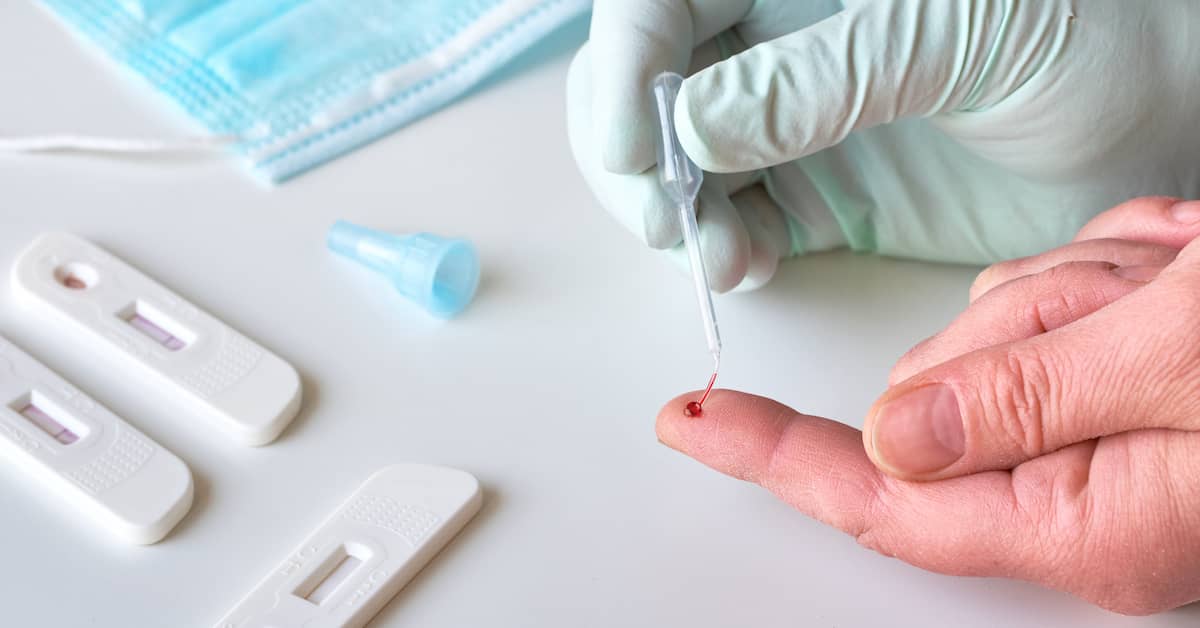
While for others, healthy lifestyle choices such as exercise and nutritious diet can slow down the aging process and dramatically improve health.
This realization has led to the search for molecular markers that can tell whether we're aging well or badly. Now scientists in England say they’ve found one powerful marker that can be tested at home.
The marker is called a glycan.
Glycans are molecules of sugar that surround and modify certain proteins. They have such a major impact on our biology that they led to the launch of the Human Glycome Project in 2018. This global initiative aims to map the structure and function of glycans in the human body.
Even though there's much to learn, enough is known now to be able to use glycans as a way to determine a person's biological age, which refers to how well we are aging rather than the number of candles on our birthday cake.
Immunoglobulin G - a Key Health Marker
One of the most well-studied glycoproteins - proteins with glycans attached to them - is immunoglobulin G (IgG).IgG is the most abundant antibody in the body. It has a wide spectrum of activity and is involved in multiple processes within the immune system. The glycan attached to IgG is an integral part of the molecule, affecting its stability and functions. It forms a distinctive pattern on protein molecules that gradually change with the aging process and therefore can give an indication of the age of the immune system.
But IgG can be influenced by many other factors too, such as sex hormones, especially estrogen. For instance, IgG rises during pregnancy and declines after menopause.
IgG is also higher in patients suffering with diseases linked to inflammation, such as autoimmune and infectious diseases, cancer, Alzheimer's, and type II diabetes.
Another reason for increased IgG is inflammaging -- age-related increases in pro-inflammatory markers in blood and tissues -- and its effect on the immune system. In fact, studies demonstrate that a change in IgG glycans can signal oncoming disease processes up to a decade before onset, so a test is potentially very valuable.
IgG as Early Warning Indicator of Aging
Gordan Lauc, professor of biochemistry and molecular biology at the University of Zagreb in Croatia, and his team have been studying IgG and its impact on aging.Prof. Lauc wrote in the journal Cellular Immunology in 2018 that although the length of telomeres - the caps at the end of chromosomes - is linked to chronological and biological aging, "decreased inflammation, but not telomere length is shown to be a predictor of healthy aging..."
And since changes in IgG glycans reflect levels of inflammation, they "are a good predictor not only of chronological, but also of biological age."
Recently, Prof. Lauc and an international team of scientists developed a blood test to measure biological age using information about glycans. Called GlycanAge, the test is marketed as "the only biological age test that is proven to respond to lifestyle changes."
What GlycanAge Tells You
Prof. Lauc believes GlycanAge is a game-changer for people who want to take control of the way they age."GlycanAge...measures your IgG glycosylation, which directly correlates with the level of inflammation in your body. It will give you information about the immune balance of your organism that changes with age, health and life circumstances,” explains Prof. Lauc.
"It's a way to give people earlier feedback. When you move from a healthy state to disease, it's a continuous process where your body is losing its normal function.
“...if you can find the problem early, and measure something to say you're on the wrong way, then you can do something to avoid the situation. At home you use a scale to see your weight. GlycanAge is like that - it's feedback that you get which reveals inner secrets."
Using GlycanAge
The test is delivered by mail, taken at home with a finger stick, and then sent back to a lab. The customer must also take an online questionnaire.Once the result of the test is known you are connected to a doctor or nutritionist over Zoom for personalized diet and lifestyle recommendations.
The test is probably only worth considering when factors linked to unhealthy aging have already been tackled, such as unhealthy blood fats and blood sugar levels, poor diet, obesity, lack of exercise, smoking, excess alcohol intake and chronic stress.
Once a person thinks they've optimized their health then the test can indicate what tweaks or changes need to be made to go one step further.
GlycanAge was developed in the United Kingdom but is available worldwide. You can find full details at https://glycanage.com
